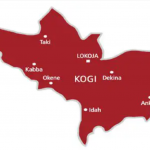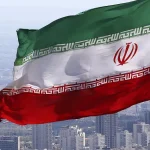President Bola Tinubu has described Nigeria’s removal from the Financial Action Task Force “grey list” as a major milestone for the country’s economy and financial governance.
The FATF, an international body responsible for combating money laundering and terrorist financing, announced Nigeria’s delisting during its October 2025 plenary session in Paris, France, on Friday.
The decision followed Nigeria’s full implementation of a 19-point action plan designed to strengthen its Anti-Money Laundering and Countering the Financing of Terrorism framework.
In a statement released by his Special Adviser on Information and Strategy, Bayo Onanuga, President Tinubu described the delisting as “not just a technical accomplishment but a strategic victory for our economy and a renewed vote of confidence in Nigeria’s financial governance.”
Nigeria had been placed on the FATF grey list in February 2023 due to weak enforcement, inadequate inter-agency coordination, and opaque financial practices.
The president said his administration viewed the FATF designation as a challenge rather than a setback, leading him to instruct key agencies to initiate broad and coordinated reforms. Under his directive, the Nigerian Financial Intelligence Unit (NFIU), in collaboration with the Offices of the Attorney-General and the Ministers of Finance, Justice, and Interior, implemented comprehensive legal, institutional, and operational changes to meet global standards.
Tinubu commended the Director and Chief Executive Officer of the NFIU, Hafsat Bakari, and her team for their “diligent and timely implementation” of Nigeria’s commitments, noting that their efforts earned international recognition in the fight against financial crimes.
Bakari, who led the reform process, confirmed Nigeria’s removal from the grey list in a statement, calling it “a true test of the country’s resilience, coordination, and unwavering commitment to reform.”
She said, “The FATF has officially removed Nigeria from the list of jurisdictions under increased monitoring, commonly known as the grey list. This milestone marks a historic moment in Nigeria’s fight against serious financial crimes and underscores our commitment to global standards in combating money laundering, terrorist financing, and proliferation financing.”
According to Bakari, the key reforms that led to Nigeria’s delisting included the enactment and enforcement of the Money Laundering (Prevention and Prohibition) Act, 2022, and the Terrorism (Prevention and Prohibition) Act, 2022, the operationalisation of the Beneficial Ownership Register, and stricter supervision of designated non-financial businesses and professions.
She added that the country had also enhanced the capacity of its intelligence and law enforcement agencies to detect, investigate, and prosecute financial crimes while improving international cooperation and information sharing.
Bakari expressed appreciation to President Tinubu for his leadership and also commended the National Assembly, the judiciary, and private sector stakeholders for their roles in achieving the milestone. She urged all parties to maintain the reform momentum to ensure continued compliance with global financial standards.
At the same plenary, the FATF also announced the removal of South Africa, Mozambique, and Burkina Faso from its grey list after confirming significant improvements in their financial integrity systems.
Economic analysts have described Nigeria’s exit from the watchlist as a development that will boost cross-border transactions, attract capital inflows, and strengthen investor confidence in the country’s financial sector.
Welcoming the decision, President Tinubu said the achievement marked the start of a new phase in Nigeria’s financial reform journey.
“We will sustain the institutionalised reforms, deepen collaboration, and continue to build a financial system that Nigerians and the world can trust,” he stated.











